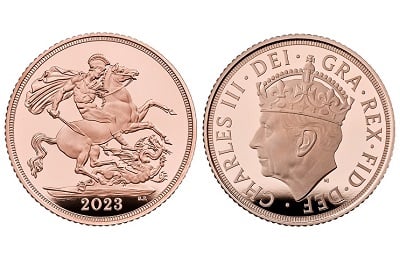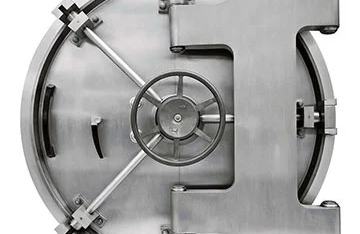Paper gold investment
Paper gold investments are an alternative way to gain exposure to the movements and performance of the gold price, but without actually buying any of the physical metal itself. Paper gold investment is usually done by retail investors and traders, looking for quick turnarounds, rather than individuals and private investors who want to use the safe have status of gold to protect their wealth over a long-term period. Below we discuss some of the differences and considerations when comparing paper gold vs physical gold investments.
What is paper gold?
Paper gold is an asset designed to reflect the market spot price of gold despite not actually being gold. It is defined as a derivative of the gold market.
Holding paper gold enables investors to get exposure to the price of gold without having to possess physical bullion, this can reduce the premium and any storage/insurance costs. It is considered more useful for trading purposes than for long-term investments.
Below are some of the main types of 'paper gold':
Gold certificates
Gold certificates were issued by the US government up until the mid-1930s. They were quite literally shares in gold held by the US Federal Reserve Banks. Most of these certificates were destroyed in 1960s as the US wound up its commitment to the gold standard.
Gold Futures
Gold futures,
traded on the futures derivatives market, are contracts to buy or sell gold on an agreed date at an agreed price. Trading in this market involves substantial risk, which is not easy to navigate as a private investor.
Commodity Pools Accounts
Commodity Pools Accounts are where investors pool their assets to afford to make deals that would not be possible for an individual investor alone. These pool accounts are then traded on gold futures markets.
Exchange Traded Funds (ETFs)
In principle, ETFs are shares of gold owned by the fund. Few ETFs actually hold physical gold. Instead they will hold gold futures: promises to buy gold, or shares in gold, held by banks.
If ETF share prices differ from the actual market price of gold then the fund's manager exchanges blocks of 100,000 shares for 10,000 ounces of gold. The possibility of such exchanges keeps the ETF price roughly in line with the gold price, although the prices can diverge during the day.
ETF shares are traded, just like stocks, on the derivatives market. Because the majority of funds hold shares in bank gold or futures, very few will allow their investors to redeem shares for actual gold and will only exchange shares for money.
Paper Gold vs Physical Gold
With paper gold you can closely reflect the price of gold while avoiding the storage and insurance costs incurred with physical gold. In addition, paper gold enables you to invest in gold even if you don’t have enough capital to buy a single ounce of gold. This is because ETF shares, or similar investment vehicles, commonly follow the price of just one tenth of an ounce. If you do not have enough money to buy a full ounce, ETFs might be a solution.
Is paper gold safe?
Despite the cost of storage and insurance, there are many reasons why physical gold may be a better investment than paper gold.
Counterparty risk is one big concern. This is the risk that those managing your ETF will fail to fulfil their promises. This is not to say they will deliberately renege on their duty, but regulations on ETFs are not as strict as on other assets.
Another risk is the market's behaviour. As ETF fund administrators issue and withdraw shares to balance maintain parity with gold, should this mechanism fail and the fund have insufficient access to physical gold to maintain their obligations the effects are clear - you would lose out.
In contrast, physical gold bullion is yours and does not rely on any bank, government or brokerage firm. There are no access concerns because it is in your possession.
Many investors choose gold as a safe haven for times of financial crisis and as a hedge to counterbalance other investments. ETFs, though, are traded like other stocks and shares on the derivatives markets and are part of the very financial system gold buyers normally seek protection from. You must then ask yourself if paper gold fulfils the primary purposes for you owning gold.
- How To Buy Gold
- How to Buy?
- Payment Options
- Delivery Options
- Gold Storage
- Storage at Brink's
- Gold Investment Guide
- Why buy gold?
- Is gold a good investment?
- Why physical gold?
- Best time to buy gold?
- Gold bars vs coins?
- Gold vs Silver
- Gold - Silver Ratio explained
- VAT on bullion
- CGT on bullion
- Legal tender coins
- Top 5 Gold Investments
- Top 5 Silver Investments
- Gold vs ISAs
- Gold vs Buy-to-Let
- Gold vs FTSE 100
- Gold vs Bitcoin
- Where to buy gold?
- Why buy from us?
- Where to sell gold?
- Coin Shops
- Gold Price Forecasts
- Top 10 Gold Producers
- Top 10 Gold Reserves
- Gold Britannia vs Sovereign
- Britannia coin designs
- Sovereign coin designs
- Sovereign Mintages
- Sovereign mint marks
- British coin specs
- What is a proof coin?
- Royal Mint bullion
- The Queen's Beasts
- Royal Mint Lunar Coins
- Bullion Refiners
- British coin mints
- Krugerrands
- Gold Tola - India & Pakistan
- Bullion Index







